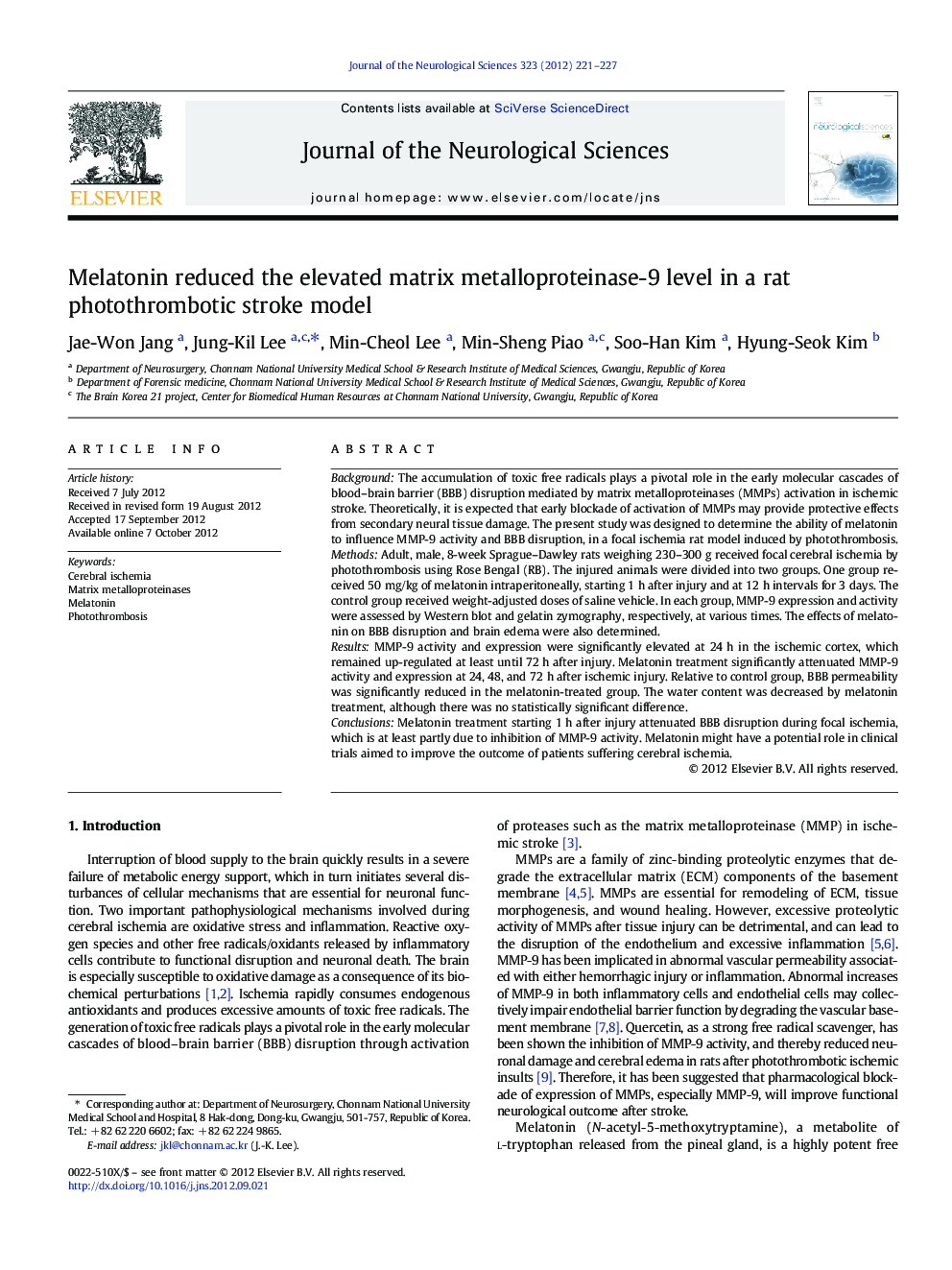| Article ID | Journal | Published Year | Pages | File Type |
|---|---|---|---|---|
| 1913825 | Journal of the Neurological Sciences | 2012 | 7 Pages |
BackgroundThe accumulation of toxic free radicals plays a pivotal role in the early molecular cascades of blood–brain barrier (BBB) disruption mediated by matrix metalloproteinases (MMPs) activation in ischemic stroke. Theoretically, it is expected that early blockade of activation of MMPs may provide protective effects from secondary neural tissue damage. The present study was designed to determine the ability of melatonin to influence MMP-9 activity and BBB disruption, in a focal ischemia rat model induced by photothrombosis.MethodsAdult, male, 8-week Sprague–Dawley rats weighing 230–300 g received focal cerebral ischemia by photothrombosis using Rose Bengal (RB). The injured animals were divided into two groups. One group received 50 mg/kg of melatonin intraperitoneally, starting 1 h after injury and at 12 h intervals for 3 days. The control group received weight-adjusted doses of saline vehicle. In each group, MMP-9 expression and activity were assessed by Western blot and gelatin zymography, respectively, at various times. The effects of melatonin on BBB disruption and brain edema were also determined.ResultsMMP-9 activity and expression were significantly elevated at 24 h in the ischemic cortex, which remained up-regulated at least until 72 h after injury. Melatonin treatment significantly attenuated MMP-9 activity and expression at 24, 48, and 72 h after ischemic injury. Relative to control group, BBB permeability was significantly reduced in the melatonin-treated group. The water content was decreased by melatonin treatment, although there was no statistically significant difference.ConclusionsMelatonin treatment starting 1 h after injury attenuated BBB disruption during focal ischemia, which is at least partly due to inhibition of MMP-9 activity. Melatonin might have a potential role in clinical trials aimed to improve the outcome of patients suffering cerebral ischemia.
